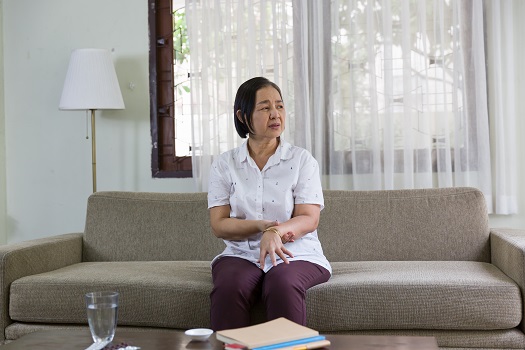Affecting 80–85 percent of people with Parkinson’s disease (PD), idiopathic (lacking a known origin) Parkinson’s is the most common form of this disease. If you’re caring for a senior loved one with this common type of PD, you may have concerns about his or her life expectancy. Parkinson’s itself isn’t fatal, but it is a progressive disorder. The short answer is there’s no specific formula to determine life expectancy because everyone reacts differently to this condition.
Many Factors Determine Life Expectancy
All forms of Parkinson’s disease tend to develop later in life, usually around the age of 60. However, several studies suggest that older adults with idiopathic or primary PD do have shorter life spans than generally healthy individuals within the same age group. Someone diagnosed in his or her 60s may live for 10–20 more years, which may not be too far from what his or her natural life expectancy would be if he or she didn’t have Parkinson’s. Additional factors that typically play a role in survival rates for seniors with PD include:
- Age at diagnosis
- Overall health status
- Response to medication and other treatments
The Rate of Progression Also Matters
Idiopathic PD is different from Alzheimer’s disease in that it doesn’t have clearly defined stages. The symptoms also don’t develop in any specific or logical order. Some older adults with PD develop problematic symptoms, such as tremors, early on. However, other seniors with this condition may need little or no treatment for many years. Regardless of when symptoms appear, this disease is chronic—meaning symptoms will eventually become more noticeable and severe over time.
An in-home caregiver can be a wonderful source of support for a senior with Parkinson’s. When considering senior home care, families should make sure their senior loved ones have the resources they need to maintain their independence and remain healthy. Trusted in-home care professionals can assist seniors with daily tasks like cooking, bathing, and exercise, and they can also encourage them to focus on healthier lifestyle habits.
Quality of Life Is Eventually Affected
Levodopa is the most commonly prescribed and effective medication for those with idiopathic Parkinson’s. It often controls symptoms, especially the ones that affect movement and make parts of the body stiff or rigid. However, the progression of the disease cannot be completely stopped. Quality of life for seniors with idiopathic PD will eventually be affected, which may mean:
- An increased risk of falling
- Difficulty with balance and coordination
- Difficulty swallowing
- An increased risk of developing aspiration pneumonia, which is a leading cause of death in those with PD
Aging in place can present a few unique challenges for older adults. Some only require part-time assistance with exercise or meal preparation, while others are living with serious illnesses and benefit more significantly from receiving live-in care. Barrie, ON, Home Care Assistance are leaders in the elderly in-home care industry for good reason. We tailor our care plans based on each senior’s individual needs, our caregivers continue to receive updated training in senior care as new developments arise, and we also offer comprehensive care for seniors with Alzheimer’s, dementia, and Parkinson’s.
Being Proactive with Care Can Help
Take comfort in knowing the life expectancy of seniors with Parkinson’s has been steadily increasing over the past few decades because of advances in medications and surgical interventions. A proactive and comprehensive approach to care can be equally beneficial for seniors with idiopathic Parkinson’s disease. Steps you could take to provide the type of care that might extend your loved one’s life expectancy and boost his or her quality of life include:
- Encouraging regular exercise and healthy eating habits, since overall health impacts life expectancy
- Managing existing conditions, especially chronic ones such as diabetes and high blood pressure
- Talking to the doctor about available medication options
- Minimizing fall hazards in the immediate living environment
- Discussing therapy options if you notice your loved one has swallowing issues
- Seeking treatment immediately if you notice signs of respiratory problems such as pneumonia
Families looking for top-rated Barrie elder care providers can reach out to Home Care Assistance. From respite care to specialized Alzheimer’s, dementia, stroke, and Parkinson’s care, there are many ways we can make life easier for seniors and their loved ones. To learn about our premier in-home care plans and how they can help your loved one, give us a call at 647-970-3803 today.
